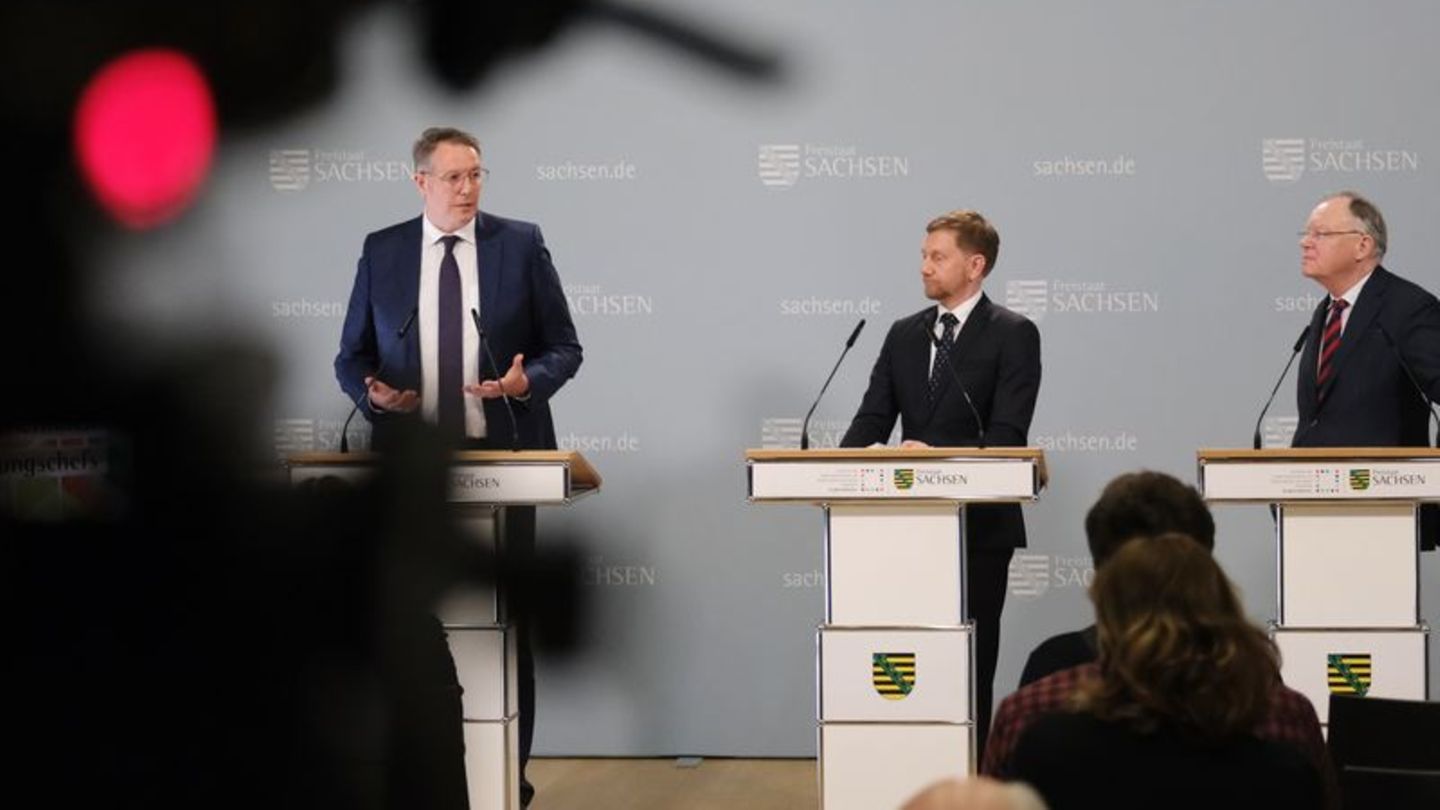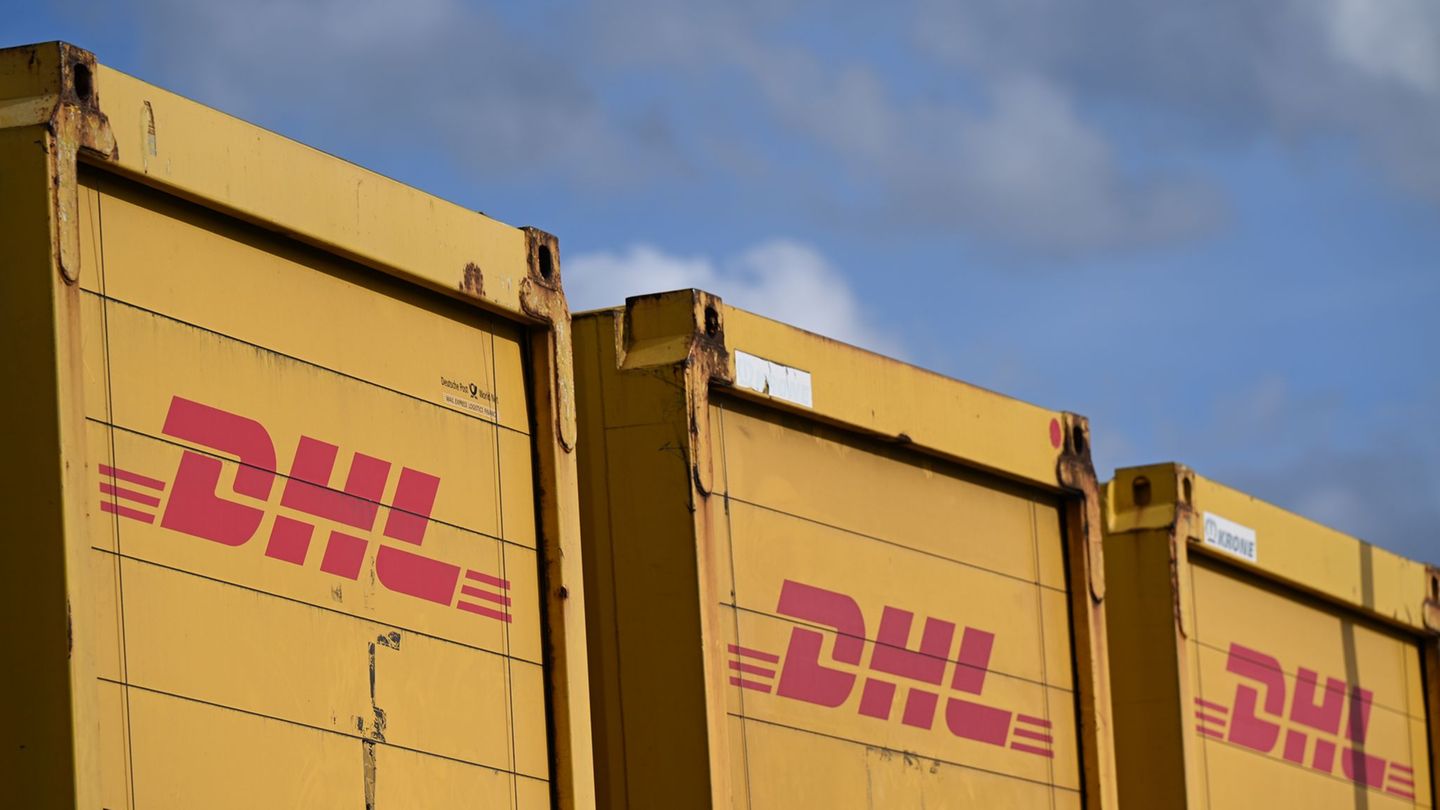Politicians want ARD, ZDF and Deutschlandradio to save money and become leaner. After a long dispute, the country leaders have made their first decisions – but an important one remains open.
The prime ministers are pushing for a major reform of public broadcasting – with fewer radio programs and television channels. The future amount of the broadcasting fee, currently 18.36 euros, remains open. The country leaders want to change the way the contribution for ARD, ZDF and Deutschlandradio is determined. They are counting on a meeting in December.
The Prime Minister of Rhineland-Palatinate, Alexander Schweitzer (SPD), said that it had been agreed “that we need a system change in the financing of public broadcasting.” There will be a different financing mechanism through contributions. There are no details yet.
The Prime Minister’s meeting has not yet decided on the future amount of the broadcasting fee, as Schweitzer said. But we are close to a solution. A recommendation from the independent finance commission KEF should continue to be central. Schweitzer’s Saxon counterpart Michael Kretschmer (CDU) added that the participation rights of the state governments and the state parliaments should be protected to the same extent.
The ARD chairman Kai Gniffke announced: “We will examine what this means for the ARD, in terms of content and law.” According to a statement from ARD, he said: “It would have been helpful if the states had also made a decision on the unresolved issue of adjusting the broadcasting fee by January 1, 2025.” Now there is still uncertainty.
ZDF director Norbert Himmler said: ZDF will therefore have fewer outlets for the future. The options for providing young people with online information in particular would be restricted. And future financing has not yet been clarified at all. “These are three difficult messages at a time when I am firmly convinced that we need strong public broadcasting,” said Himmler.
According to a statement, Deutschlandradio director Stefan Raue said with regard to the open financing: “We will consult with our committees about the consequences of the constitutionally required and yet again suspended decision on the KEF recommendation for the broadcasting fee.”
Dispute over broadcasting fees a case for Karlsruhe?
The open question of the future broadcasting fee could end up before the Federal Constitutional Court if ARD, ZDF and Deutschlandradio sue. The new period for the contribution that households and forms pay begins on January 1, 2025. Then, according to an expert recommendation from the Commission for Determining the Financial Requirements of Broadcasting Corporations (KEF), the broadcasting contribution would have to increase by 58 cents from 18.36 euros per month rise to 18.94 euros. There is a constitutionally guaranteed procedure behind this.
The country leaders actually have to follow the recommendation closely. Saxony-Anhalt had already suffered a defeat before the Federal Constitutional Court last time because the state had opposed a recommended increase. The public broadcasters were right and therefore got more money. An increase in the contribution now at the turn of the year is now considered virtually impossible for purely time-related reasons.
The German Journalists’ Association and the Verdi union criticized the Prime Minister’s decisions. The broadcasters should have the dispute over money reviewed constitutionally again, it said in messages.
This is what the reform plans are about
The Prime Ministers want the reform so that public broadcasting can be made more efficient. Kretschmer said that this would “dampen the cost dynamics that exist.” Brandenburg Prime Minister Dietmar Woidke (SPD) said that agreement on the broadcasting reform was “urgently necessary”.
Details of the decision have not yet been published. The countries mentioned a few points in the press conference. For example: The ARD radio programs are to be reduced from 70 to 53. Regarding the smaller TV channels, Schweitzer made it clear: “We have not decided to merge 3sat and Arte.” Rather, it was suggested that Arte be created as a European cultural platform and that 3sat content could play a role there in the future. KiKA and the digital radio offering will be retained. There should be a cooperation at One and ZDFneo. The Prime Ministers have also decided to cap expenditure on sports rights.
Gniffke emphasized: “ARD has the same goal as the states of making public broadcasting efficient, modern and, above all, future-proof. Parts of the Reform State Treaty are going in the right direction, but some regulations present us with challenges. But we are tackling it .”
The next steps
Bavaria’s Prime Minister Markus Söder (CSU) said: “First come the reforms, then comes the issue of fees.” In order for the structural reforms to take effect, all state parliaments must agree. If even one state parliament rejects the paper, the changes to the state broadcasting contracts cannot come into force. According to previous state information, the reform could be implemented from summer 2025.
In state treaties, the federal states have been specifying the mission and structure of public broadcasting for decades. It’s about how many broadcasters there are and what programs are offered.
Why are the states arguing about the broadcasting fee?
Opponents of an increase argued that the Houses had not done enough to reform themselves. The annual amount for broadcasting is currently nine billion euros. Proponents said reforms would only deliver savings over time. Therefore, the houses must be granted the increase in contributions – also with a view to inflation.
In the past few months, positions on broadcasting fees have been far apart. Countries such as Saxony-Anhalt and Bavaria have repeatedly spoken out against an increase. However, this question also requires a unanimous vote. Saxony-Anhalt’s Prime Minister Reiner Haseloff, who recently opposed an increase, emphasized after the meeting: “Public broadcasting is indispensable and a valuable asset.”
Source: Stern
I am an author and journalist who has worked in the entertainment industry for over a decade. I currently work as a news editor at a major news website, and my focus is on covering the latest trends in entertainment. I also write occasional pieces for other outlets, and have authored two books about the entertainment industry.




